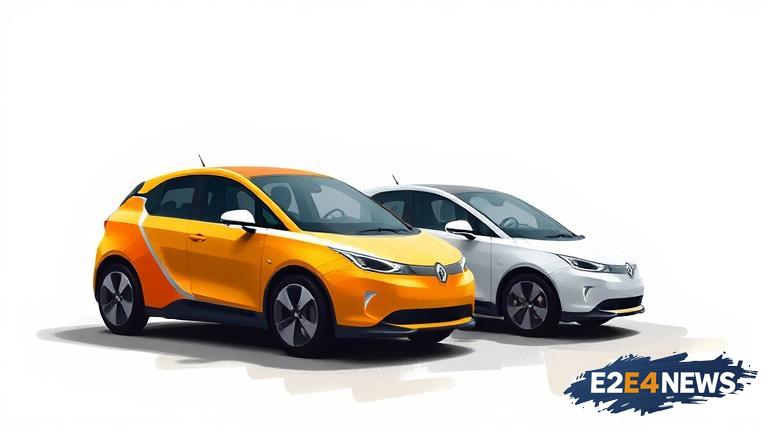The Indian government has announced a comprehensive plan to promote the adoption of electric vehicles (EVs) in the country. The plan includes a range of incentives and initiatives to encourage the use of EVs, including tax breaks, subsidies, and investment in charging infrastructure. The government has set a target of having at least 30% of new vehicle sales be electric by 2030. To achieve this goal, the government will provide subsidies to manufacturers of EVs, as well as to consumers who purchase them. The subsidies will be in the form of tax breaks and rebates, and will be available for both personal and commercial vehicles. In addition to the subsidies, the government will also invest in the development of charging infrastructure, including the installation of charging stations along highways and in urban areas. The government has also announced plans to promote the use of EVs in public transportation, including buses and taxis. The plan includes the deployment of 5,000 electric buses in cities across the country, as well as the promotion of electric taxis and auto-rickshaws. The government has also announced plans to encourage the use of EVs in the private sector, including the promotion of electric cars and two-wheelers. The plan includes the provision of subsidies to companies that purchase EVs for their fleets, as well as the promotion of EVs as a mode of transportation for employees. The government has also announced plans to invest in research and development of new EV technologies, including battery technology and charging systems. The plan includes the establishment of a national EV mission, which will be responsible for promoting the adoption of EVs and coordinating the efforts of government agencies, manufacturers, and other stakeholders. The mission will be headed by a high-level official and will have representatives from various government agencies, including the ministries of transport, energy, and environment. The government has also announced plans to promote the use of EVs in rural areas, including the deployment of electric tractors and other farm equipment. The plan includes the provision of subsidies to farmers who purchase EVs, as well as the promotion of EVs as a mode of transportation in rural areas. The government has also announced plans to encourage the use of EVs in the tourism sector, including the promotion of electric vehicles for tourist transportation. The plan includes the provision of subsidies to tour operators who purchase EVs, as well as the promotion of EVs as a mode of transportation for tourists. The government has also announced plans to invest in the development of EV-friendly infrastructure, including the installation of charging stations at tourist destinations. The plan includes the promotion of EVs as a mode of transportation for tourists, as well as the encouragement of tour operators to use EVs for tourist transportation. The government has also announced plans to promote the use of EVs in the logistics sector, including the promotion of electric vehicles for goods transportation. The plan includes the provision of subsidies to logistics companies that purchase EVs, as well as the promotion of EVs as a mode of transportation for goods. The government has also announced plans to invest in the development of EV-friendly infrastructure, including the installation of charging stations at logistics hubs. The plan includes the promotion of EVs as a mode of transportation for goods, as well as the encouragement of logistics companies to use EVs for goods transportation. The government has also announced plans to promote the use of EVs in the agricultural sector, including the deployment of electric tractors and other farm equipment. The plan includes the provision of subsidies to farmers who purchase EVs, as well as the promotion of EVs as a mode of transportation in rural areas. The government has also announced plans to invest in the development of EV-friendly infrastructure, including the installation of charging stations at farm hubs. The plan includes the promotion of EVs as a mode of transportation for farmers, as well as the encouragement of farmers to use EVs for farm transportation. The government has also announced plans to promote the use of EVs in the construction sector, including the promotion of electric vehicles for construction transportation. The plan includes the provision of subsidies to construction companies that purchase EVs, as well as the promotion of EVs as a mode of transportation for construction equipment. The government has also announced plans to invest in the development of EV-friendly infrastructure, including the installation of charging stations at construction sites. The plan includes the promotion of EVs as a mode of transportation for construction equipment, as well as the encouragement of construction companies to use EVs for construction transportation. The government has also announced plans to promote the use of EVs in the mining sector, including the promotion of electric vehicles for mining transportation. The plan includes the provision of subsidies to mining companies that purchase EVs, as well as the promotion of EVs as a mode of transportation for mining equipment. The government has also announced plans to invest in the development of EV-friendly infrastructure, including the installation of charging stations at mining sites. The plan includes the promotion of EVs as a mode of transportation for mining equipment, as well as the encouragement of mining companies to use EVs for mining transportation.
